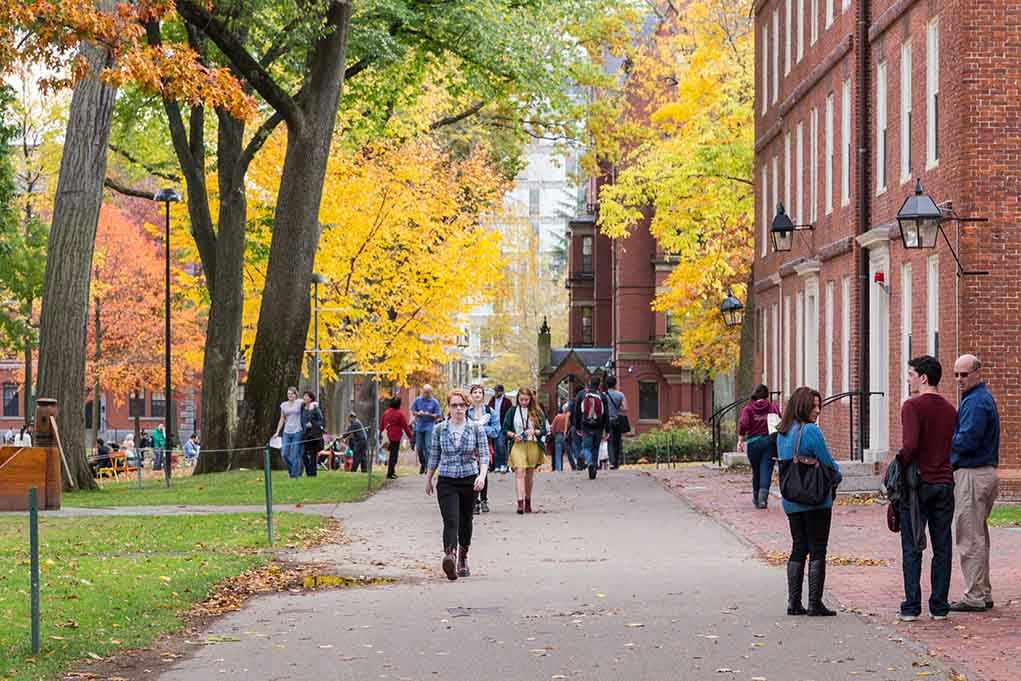
Elite colleges are now ground zero in an explosive battle over who truly deserves a shot at the American Dream, as federal agencies, state officials, and campus leaders clash over the fate of undocumented immigrants and the future of U.S. higher education.
Story Snapshot
- Elite universities are under fire for prioritizing undocumented immigrant students, sparking allegations that American citizens are being edged out.
- Federal government actions in 2025 against top-tier schools like Harvard have triggered lawsuits and emergency court orders.
- Legal and political battles are reshaping the landscape for both undocumented and American students nationwide.
- The outcome could redefine academic freedom, admissions, and even the core mission of the university itself.
Elite College Admissions Become a National Battleground
Admissions offices at the most prestigious American universities now operate under a microscope. For over a decade, elite institutions have steadily expanded access and financial support for undocumented students, catalyzed by the 2012 launch of DACA. But as the political winds shifted, their quiet policies exploded into the public arena. In 2025, after years of simmering tension, the federal government moved to revoke Harvard’s ability to enroll international students, citing its support for undocumented immigrants as a violation of federal law and a threat to American applicants. The stage was set for a clash with repercussions far beyond Harvard Yard.
Top colleges give illegal-immigrant kids a boost — and put Americans second https://t.co/AMr7Kh2BIA
— Liz V (@ShoreEJV) September 30, 2025
American families, caught in the crossfire, increasingly wonder whether their children’s odds at top universities are shrinking. The core charge: when slots and scholarships are finite, every boost to a non-citizen can feel like a loss for a citizen. This zero-sum framing, amplified by media and advocacy groups, has polarized campus and country alike, fueling bitter debates over fairness, merit, and national loyalty. Yet university leaders push back, arguing that diversity—including the presence of undocumented students—strengthens their institutions and aligns with their mission of nurturing talent regardless of birthplace.
Federal Crackdown Sparks Legal and Political Firestorm
The spring of 2025 became a watershed moment. Federal agencies moved against Harvard, threatening and then enacting the revocation of its SEVP certification, a bureaucratic maneuver that left thousands of international students—and by extension, undocumented students—at risk of losing legal status overnight. The university immediately filed suit, claiming violations of due process and academic freedom, and soon a temporary restraining order partially restored operations. The legal fight, splashed across front pages and social media, exposed the deep fissures between the federal government’s stance on immigration enforcement and the universities’ claims to autonomy and inclusion.
Universities nationwide scrambled to assess their own vulnerability. Some states rushed to pass new laws restricting aid to undocumented students, while others dug in to defend access. Campus protests erupted, and admissions counselors faced a deluge of questions from anxious families. Meanwhile, advocacy groups on both sides seized the moment: some demanding more transparency and fairness for American citizens, others warning of a chilling effect on educational opportunity for all.
Winners, Losers, and the Future of the American University
This standoff is about more than admissions formulas or tuition dollars. At stake is the very definition of who belongs in the nation’s top classrooms—and who gets to decide. In the short run, the uncertainty has upended the lives of thousands of undocumented and international students, threatening their ability to complete degrees and, in some cases, forcing them to leave the country. For American students and families, the prospect of reduced slots and shifting standards has sparked resentment and anxiety, particularly as the cost of college continues to rise.
The long-term consequences remain unsettled. If federal intervention prevails, universities may lose ground on diversity and autonomy, with lasting damage to their global reputations. If universities prevail in court, expect continued political backlash and potential new legislative efforts to limit their institutional power. For now, elite colleges remain both a symbol and a battleground: their gates open to the world, but under siege from all sides over whom they let in, and why.
Sources:
Harvard University (Visa Lawsuit Filing)




